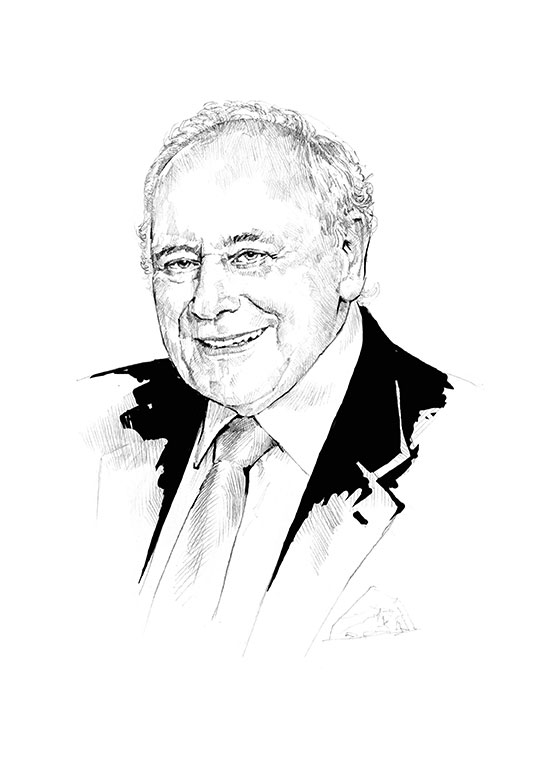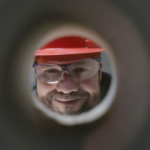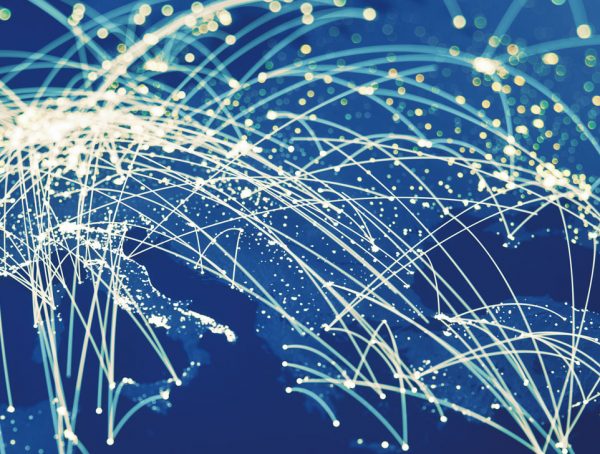
Prof. Dr. h. c. mult. Reinhold Würth Chairman of the Supervisory Board of the Würth Group’s Family Trusts
Ladies and gentlemen, Dear readers,
This issue of Kaleidoscope is dedicated in part to the topic of sustainability. If you write down some thoughts on this subject, it is almost impossible not to be berated as a plagiarist. The term is omnipresent, global, and used more widely in the German language than almost any other word. Ultimately, we are left with the impression that this is one of those words that remains extremely vague and can be interpreted differently by every citizen of earth.
Sustainability can stand for many different views and ideas, similar to the words happiness, joie de vivre, heaven, hell, or the universe. Everyone is familiar with the words but defines and interprets them individually.
The same holds true for sustainability, for which the only constant is that it fosters more understanding than is the case for short- and medium-term issues. Which time periods? Sustainability might concern the period of time from our first step as a small child to our last steps in our old age. Sustainability can represent the certainty that the subway will depart every morning at the same time. Sustainability is also the limited knowledge of where humans come from and how long we will continue to survive on this planet.
We could debate about these subjects for weeks on end, but this would quickly verge on speculation. Life after death? A matter of fact for any Christian, right?
I would like to use an example to illustrate how quickly decisions about sustainability can become outdated. After the Chernobyl nuclear disaster in 1986 and the massive nuclear accident in Fukushima, Chancellor Merkel decided on 6 June 2011 to close and decommission all German nuclear power plants. At the moment, there are only a few nuclear reactors still connected to the grid in Germany, and soon nuclear energy will be a thing of the past: the understandable consequence of concerns about potential disasters that could occur when generating nuclear energy.
BUT: No other country in the EU that operates nuclear power plants has reacted in this way. And just ten years after the German resolution, France and the United Kingdom are installing large numbers of new nuclear power plants. Therefore, Merkel’s decision to close Germany’s nuclear power plants was completely illogical, especially because the German government was forced to pay billions of euro in damages to the former plant operators and now an actual power shortage is anticipated, which may require French or British nuclear power to cover the demand here in Germany.
The question of security also remains unresolved: If a French or Belgian nuclear reactor were to explode or implode today, the radiation would logically escape into the atmosphere. Due to the prevailing westerly winds in Central Europe, it could be assumed that the nuclear contamination would hit Germany first. This example demonstrates that the “sustainable resolution” to shut down German nuclear power plants was absolute nonsense.
Sustainability is a big word, and my company gladly promotes activities that save the world’s resources in order to prolong the survival of the human race for another century or so. We are aware of the fact that every liter of diesel oil and every gallon of jet fuel that is blown through the engines are lost forever and will never be replenished. This means that no matter how large our reserves of crude oil and natural gas are, they are diminishing every day, in turn disrupting any sustainability efforts.
“My company has big plans
for helping to limit global
warming significantly.”
You all know that in July 2021 humans had already used up the regenerative reserves of the earth for the entire year of 2021. We lived off of fumes for the remaining five months, thus nearing the end of humankind. We will likely regret shutting down Germany’s nuclear power plants because they generate unlimited and completely climate neutral power, which we all, particularly the industrial sector, so desperately need.
We may have to rethink this decision in the next 20 years and rebuild smaller nuclear power plants with even stricter safety measures in Germany as well in order to respond to climate change.
This statement sounds downright crazy based on today’s definition of sustainability, but it is surely one version of responsible sustainability. China alone is building 50 or more new coal-fired power plants to quench the country’s thirst for energy.
Until now, the world has proven to be a wonderful spaceship for humanity, and it will continue to do so for a while to come. Nevertheless, we must not take sustainability lightly when protecting our planet. My company has big plans for helping to limit global warming significantly: For example, over 30,000 sales rep vehicles will gradually be converted to an electric motor, solar panels will be installed on the rooftops of all production plants, and our facilities will switch over to LED lighting one by one. We are simplifying our packaging to avoid waste, and we are amping up the creation of energy-efficient and labor-efficient products in our new research and development centers to meet the highest possible sustainability standards. Of course we will need several years to accomplish this entire agenda, but we are well under way and have invested millions in this endeavor, which will ultimately benefit people everywhere. Even if our efforts represent only one tiny tile in the mosaic of environmental protection, we will remind ourselves that even the ocean is made up of individual drops of water.
Our hope is that these actions will also encourage our employees to follow suit and protect the environment, thus multiplying the effects.
Dear readers, dear customers, I would like to close with a personal thanks. The Würth Group finished out the year 2021 with a new sales record of over EUR 17 billion and also reported the best operating result in the company’s 75-year history. I would like to thank you all for this on behalf of my entire family, and also on behalf of the Würth Group. I have to admit that I cannot help but feel a great sense of pride at the thought of these wonderful and sustainable accomplishments since I joined Würth as an apprentice in 1949 under the tutelage of my father and have been able to remain involved behind the scenes with the most important Group decisions to this very day.
I would argue that we have succeeded in achieving a bit of sustainability here, too. Following the early death of my father in 1954 and after I assumed leadership of the company, Würth has developed from a two-man operation to a multi-national company with more than 83,000 employees. This was only possible thanks to the goodwill of our customers and due to our efforts to render service on a large scale by serving and performing to the best of our ability. None of this should change in the coming era of sustainability.
Yours truly, Reinhold Würth









